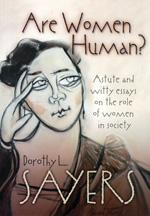 A decade ago, I was enjoying an imperial pint of Abbot Ale in The Eagle and Child Pub, at St. Giles’ street in Oxford, sitting right in the ‘Rabbit room,’ after spending a pleasant evening at the C.S. Lewis club in the Pusey House. That day I also visited the Oxford Quaker Meeting place (where C.S. Lewis got married) which is about 50 meters away from the pub, which is 50 meters away from the Pusey House.
A decade ago, I was enjoying an imperial pint of Abbot Ale in The Eagle and Child Pub, at St. Giles’ street in Oxford, sitting right in the ‘Rabbit room,’ after spending a pleasant evening at the C.S. Lewis club in the Pusey House. That day I also visited the Oxford Quaker Meeting place (where C.S. Lewis got married) which is about 50 meters away from the pub, which is 50 meters away from the Pusey House.
I was admiring the work of Lewis and Tolkien and other Inklings.
From a circle of their friends to my mind comes Dorothy Sayers, most notably a UK detective stories writer, but her life was far from being dull. She was an Oxford student back in 1912 where women were still not being awarded academic titles for their studies. She wrote two essays in 1947, later published under a title Are Women Human? to emphasize the women rights. For many years she was a church warden at St. Anne’s Anglican church in London, she wrote Christian poetry: Catholic Tales and Christian Songs (1918).
Apparently she was a good friend with C.S. Lewis (none of them is around to confirm that), but she was a visitor to the Socratic Club and she knew other Inklings. Lewis read her The Man Born to be King every Easter, he stated. Dorothy wrote other Christian books too: Creed or Chaos? and also The Mind of the Maker.
 In 1943 she declined an honorary doctorate in divinity from the Anglican church. I guess it was a statement. How about that?
In 1943 she declined an honorary doctorate in divinity from the Anglican church. I guess it was a statement. How about that?
To this day her translation of Dante’s Divine Comedy is still the best one that exists in English. Umberto Eco stated that her Dante ‘does the best in at least partially preserving the hendeca-syllables and the rhyme.’
Why all this about Dorothy? Because of radio J! Here is an excerpt from the Wikipedia article on The Man Born to be King. Quite something.
The Man Born to Be King is a radio drama based on the life of Jesus, produced and broadcast by the BBC during the Second World War. It is a play cycle consisting of twelve plays depicting specific periods in Jesus’ life, from the events surrounding his birth to his death and resurrection. It was first broadcast by the BBC Home Service on Sunday evenings, beginning on December 21, 1941, with new episodes broadcast at 4-week intervals, ending on October 18, 1942. The twelve plays in the cycle are:
The project aroused a storm of controversy, even before it was broadcast. Objections arose to the very idea — atheists complained of Christian propaganda, while devout Christians declared that the BBC would be committing blasphemy by allowing the Christ to be impersonated by a human actor — and also to Sayers’ approach to the material. Sayers, who felt that the inherent drama of the Gospel story had become muffled by familiarity and a general failure to think of its characters as real people, was determined to give the plays dramatic immediacy, featuring realistic, identifiable characters with human emotions and motivations — and speech-patterns. The decision to have the characters speak in contemporary colloquial English was, by itself, the cause of much disquiet among those more used to hearing Jesus and his followers speaking in the polished and formal words of the King James Bible.
 In the event, although it continued to be criticized by conservative Christians — one group going so far as to proclaim the fall of Singapore in February 1942 to be a sign of God’s displeasure with the series. The public reaction to the series is described in the foreword to the published play scripts. The Man Born to Be King was generally considered a great success, both as drama and as biblical representation.
In the event, although it continued to be criticized by conservative Christians — one group going so far as to proclaim the fall of Singapore in February 1942 to be a sign of God’s displeasure with the series. The public reaction to the series is described in the foreword to the published play scripts. The Man Born to Be King was generally considered a great success, both as drama and as biblical representation.
I wish you a nice Reformation Day!

Pingback: BBC Home Service | TagHall